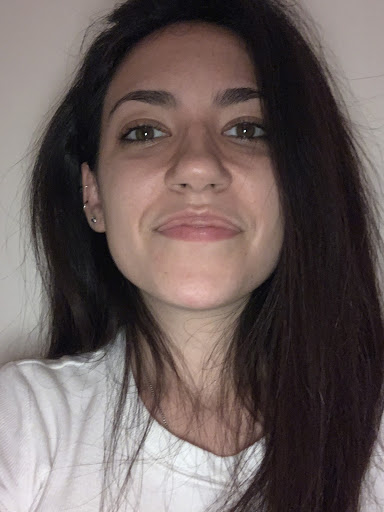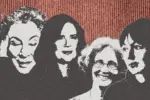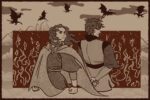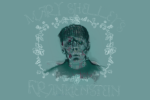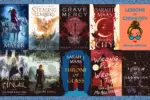At this point we’ve all heard of Audible or Scribd, which are among the most used platforms for audiobooks. But it wasn’t always this easy to access audiobooks. “The first audiobook emerged in 1932,” an article for PBS says, “with the establishment of a recording studio by The American Foundation for the Blind.” So, as we all probably guessed, audiobooks may have started with a narrower audience, but now, it seems as if many people have jumped onto the audiobook train.
Booktube, YouTube’s book community, has seen a rise in videos recommending audiobooks in the past few years. For people who read as much as they do, audiobooks have become an indispensable medium for reading. They don’t have a moment to sit down today? They’ll just play one in the car on their way to an errand they have to run.
But audiobooks are not only good for productivity. Chanelle, creator of the YouTube channel channelletime, says in a video that “Audiobooks have been amazing for my brain.” As someone who has constant headaches and migraines, audiobooks have been incredibly helpful to her. They help her focus on the book instead of being distracted by her surroundings. In her own words, “They are a lifesaver.”
Audiobooks are obviously very effective and can be fun to listen to, especially when writers take advantage of them. Authors can give their stories a whole new dimension when they’re, instead, read to us.
However, there are a few caveats. Books told from one perspective are often read aloud by a single reader or narrator. And even though there is a single point of view, there are still multiple characters. So, what the narrator does is change their voice to adapt to different characters. This took me a bit by surprise, causing me to cringe internally at certain dialogues, and I thought that was it — that I was done with audiobooks. Turns out, you just need to find the right one. Because yes, there are some bad ones, but, wow, are there good ones too.
“Chaos Walking” by Patrick Ness
This is a science fiction trilogy where men have an “illness,” referred to as the noise, which causes their thoughts to be heard and seen by those around them. Women, unfortunately, are thought to have been killed by the illness. That is, until our main character, Todd, has an encounter with a woman and embarks on an adventure with her to find out the truth about his world’s history.
This audiobook is amazing because the creators have added effects when we, the listeners, are hearing thoughts instead of dialogue. It also includes sound effects, which makes the whole reading experience incredibly immersive.
“The Poet X” by Elizabeth Acevedo
This book, written in verse, tells the story of a young girl living in Harlem who discovers slam poetry. She uses it as a way to explore her identity and express her feelings toward her mother’s religion. The beauty of this audiobook is that it is narrated by Acevedo herself and, as a Spanish-speaking Latinx woman, she perfectly pronounces names and certain phrases that appear in the book, giving the reader, again, the full experience of the story.
Acevedo is also a National Poetry Slam Champion, so it’s safe to say the poetry this main character writes could not be read with more feeling than the way she does it.
“Daisy Jones and The Six” by Taylor Jenkins Reid
This novel is written in an interview format. It’s an oral history about the formation, the absolute success and the eventual downfall of a fictional ’70s rock band. Because it’s in an interview format, there is no better medium than an audiobook.
This is a unique one, though, because it has a full cast. All of them were chosen by Reid herself. When reading this story, I had to Google the name of the band a few times just to make sure it wasn’t actually a real band. That’s how much you are dragged into it. Reid even wrote some of the band’s songs, so she made it even harder to believe that these characters are made up.
Other honorable mentions include “Becoming” by Michelle Obama, where hearing her story in her own voice makes it more personal than it already is; “Sadie” by Courtney Summers, where a lot of the story is told from a true crime podcast and feels like you’re listening to a real one; and “I’m Thinking of Ending Things” by Iain Reid, an eerie stand-alone that will make you think twice about reading it at night (do not recommend, yikes).
So, all of this information begs the question: Should writers take advantage of other mediums, such as audiobooks, when writing their books? I don’t think it needs to be an active thought, but if the story comes out in a certain untraditional way, much like Taylor Jenkins Reid’s “Daisy Jones and The Six” or Patrick Ness’ “Chaos Walking,” then absolutely. Writers should take advantage of our senses as much as possible to involve us in their worlds.
Many people found these books, Reid’s in particular, unbearable to read in a physical format — to the point of almost DNFing (did not finish) it. But, when they then turned to the audiobook, they didn’t regret it one bit because it’s a truly amazing book. However, for many people, it becomes an amazing book only when you can listen to it.
If you’ve been hearing about audiobooks for a while and have been thinking of trying them out, this is your sign to actually do it. You have some recommendations above to start you off. Audiobooks can be found on the aforementioned platforms, such as Audible, associated with Amazon, or Scribd, which gives you a month-long free trial. But for a more accessible option, go to your local library and get a card, if you don’t have one already. The app Libby and your library card number will give you free access to both audiobooks and e-books. Totally worth it. Happy listening!




